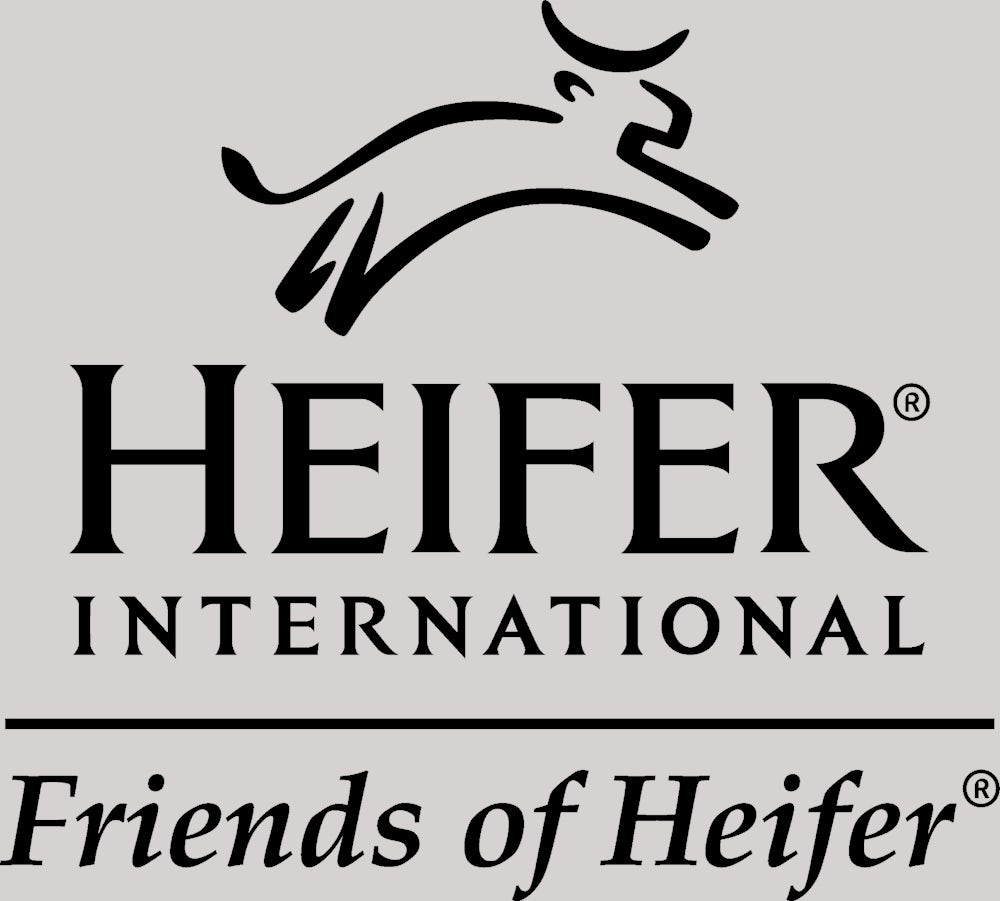
Ambia Begum and her husband, Abul Hossain Mondal, live with two of their daughters and granddaughter, Opshora, in a three-room brick home on a fenced compound in northern Bangladesh. They have cement steps, electricity and a refrigerator. It’s starkly different from Ambia’s childhood home, where she, her parents and sister all lived together in a one-room bamboo shack. Ambia grew up during Bangladesh’s liberation revolutions - dodging daily bombings and hiding in mango trees as to not be captured by troops.
Today, Ambia and Abul’s daughters and granddaughter have a much brighter future, largely due to the resources and training they received from Heifer. Thanks to your steadfast support, Heifer has helped Ambia and thousands of women farmers in Bangladesh diversify and increase their incomes and fortify themselves against climate change with farming practices that are better for the environment.
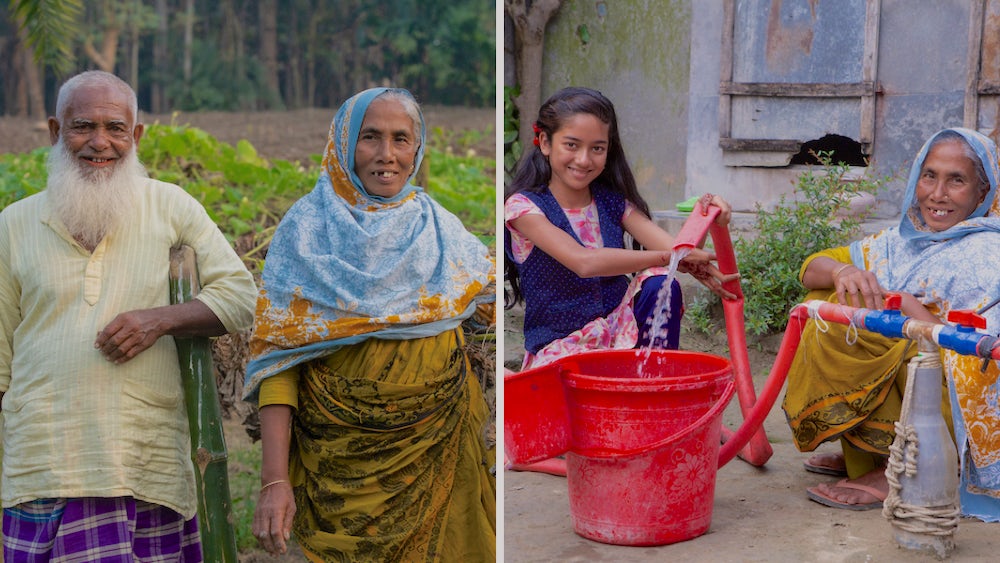
Ambia and Abul began their journey out of poverty in 2017, when Heifer launched a project in their area. Ambia recalls before joining the Heifer project, many of their goats died. “They used to have lots of diseases, and they were not healthy.” she said. She didn’t realize how little she knew about caring for her animals. For example, she had no idea when or how to administer medicines and vaccines.
With Heifer’s help, she learned how to grow fodder in vertical stacks, which require very little water, less space and provide plenty of healthy feed for her goats - even in times of excessive drought or rain. In addition to the training, Ambia receives support from a Heifer-trained Community Agro-Veterinary Entrepreneur (CAVE) who frequents her farm to provide continued education to her and medical care to her livestock.
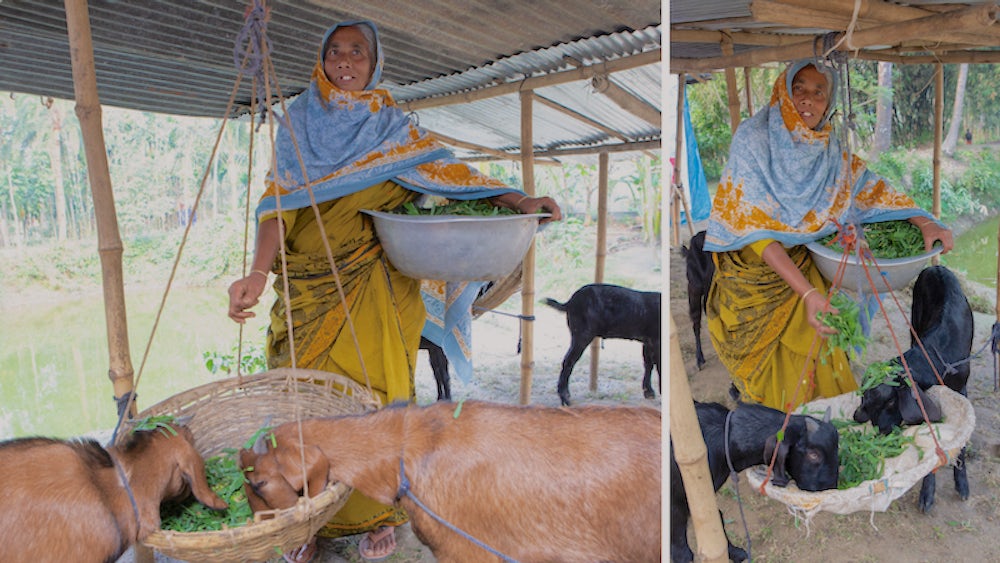
Decent shelter and proper care for the goats, plus resources and training for the farmers, equals a highly productive and profitable farm. Ambia and her family now raise healthy goats into adulthood, which have a higher market value. Their goats once sold for as little as $50 — sometimes not even that. Today, they can earn as much as $150 per goat.
Ambia and her family used the profits from their goat sales to create new income streams — another piece of wisdom gained from Heifer. “If I invest in different sectors,” Ambia said, “some sectors may be profitable, some may be losses, but on average I am always in profit, which is helpful in maintaining the family.”
Ambia bought 200 chicks and built a wooden coop with a warming lamp to raise chickens, which she sells to traders. Her granddaughter Opshora loves taking care of the chicks. “When the chickens are small, they look very cute,” Opshora said.
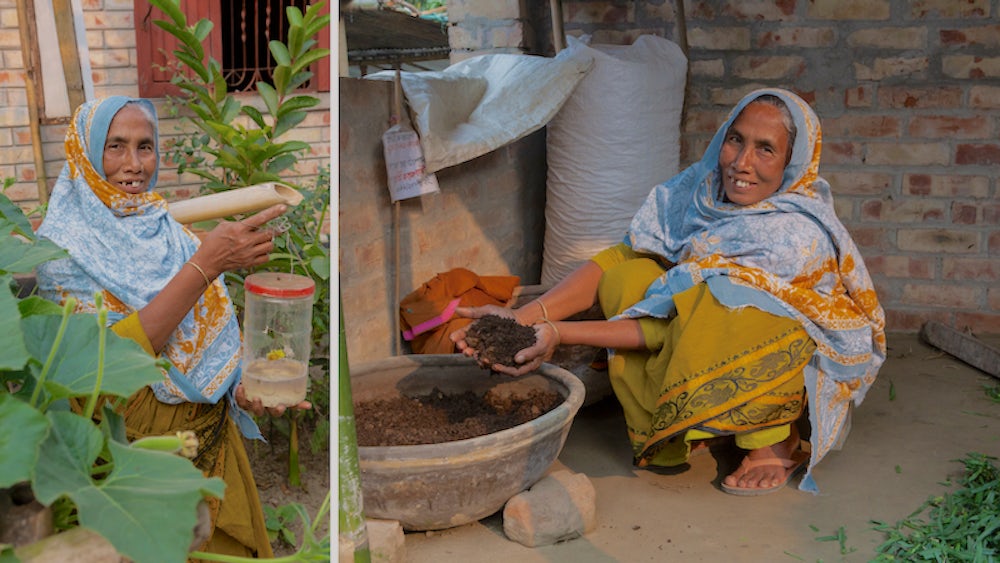
Meanwhile, thanks to the organic farming methods Ambia learned from Heifer, the family’s vegetable garden is thriving like never before — producing big, juicy cucumbers, as well as gourds, radishes, red amaranth and two kinds of spinach.
“From Heifer I got to know how to improve the environment,” Ambia said — simple steps like using pheromone traps and boiled neem leaves to control insects, rather than harmful chemical pesticides, and mixing animal manure with worms to create a rich compost.
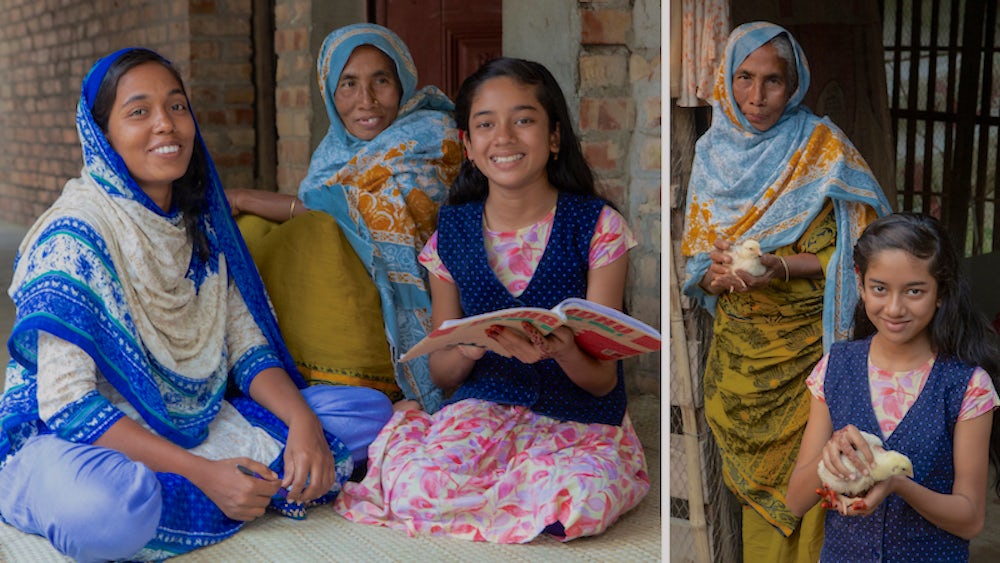
With multiple sources of income, the family can now afford school fees. In fact, daughter Shahina has a graduate degree in social work. Inspired by her mother’s example of selflessness and generosity, she wants to help others, too.
Opshora has similar charitable aspirations. “I want to be a doctor in the future and help people and be by the side of people and give them service.” Of Heifer supporters like you, Ambia says. “You have helped us a lot.”
On behalf of everyone at Heifer, thank you for being a good Friend to this family and thousands more just like them.
